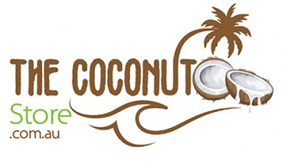FODMAP and Coconut: Are Coconut Products Low FODMAP?
Overseeing a low-FODMAP diet requires a meticulous examination of food choices, particularly when it comes to coconut products. This article will address the pivotal question of which coconut products have low FODMAP. A fundamental aspect of this post revolves around understanding the FODMAP content inherent in various coconut products. This is for individuals adhering to a low-FODMAP diet, aiming for clarity on the compatibility of coconut-based choices within their dietary restrictions. What is FODMAP? FODMAPs, an acronym for Fermentable Oligosaccharides, Disaccharides, Monosaccharides, and Polyols, are a group of short-chain carbohydrates that can trigger digestive symptoms in some individuals. These include fructans, galacto-oligosaccharides, lactose, excess fructose, and polyols like sorbitol and mannitol. Low FODMAP vs. High FODMAP Low FODMAP: Foods that contain lower amounts of these fermentable carbohydrates, making them more suitable for individuals sensitive to FODMAPs. Individuals with conditions like IBS often follow
Read More











